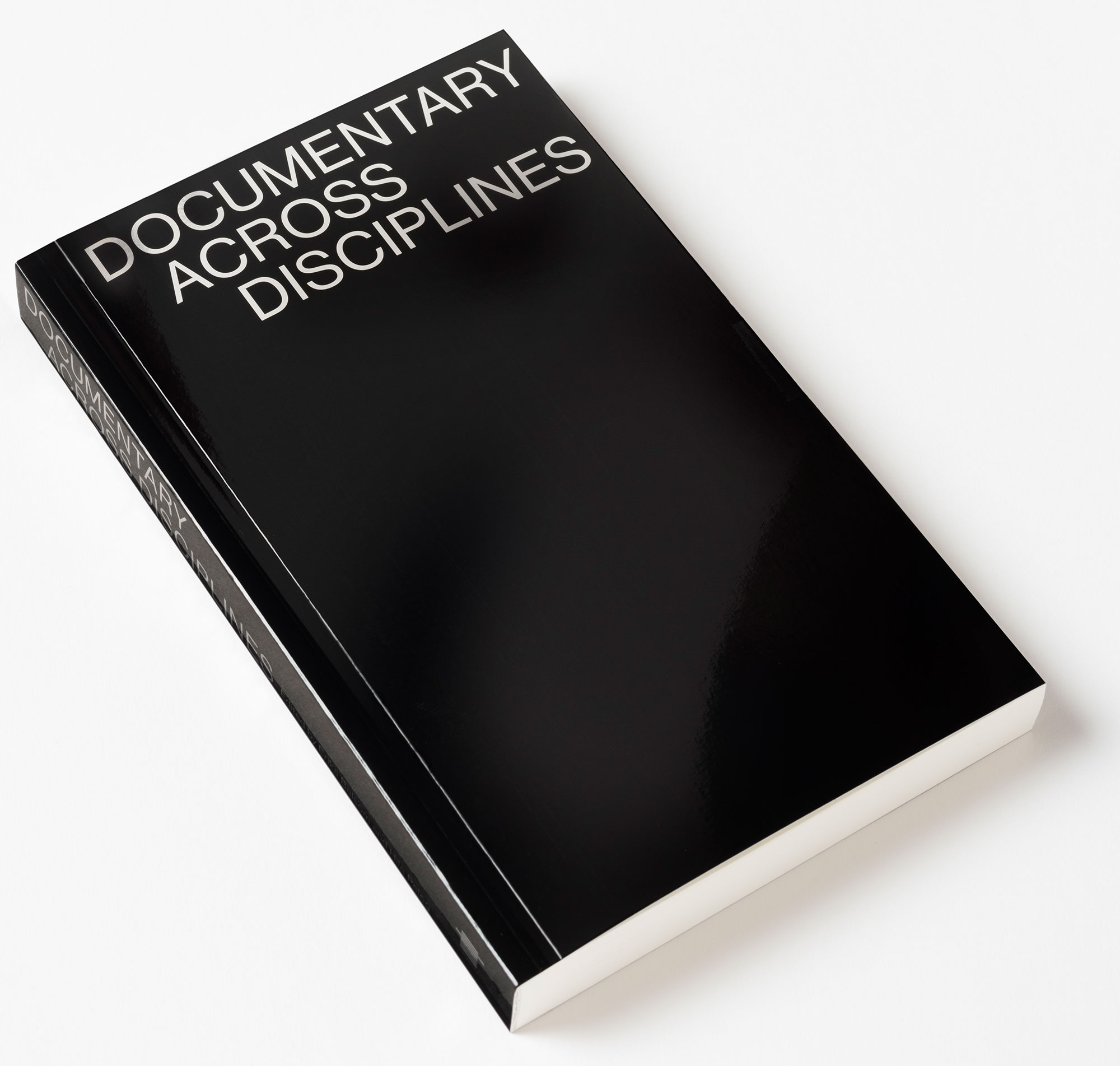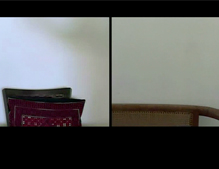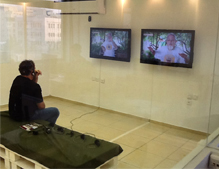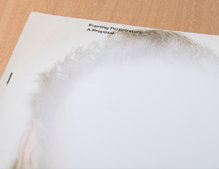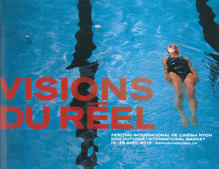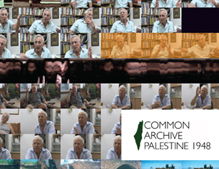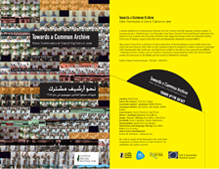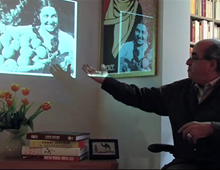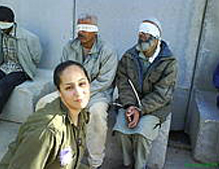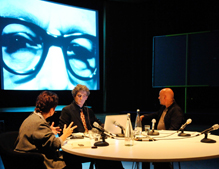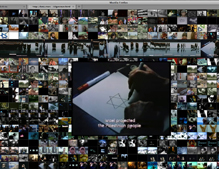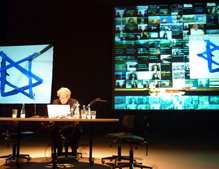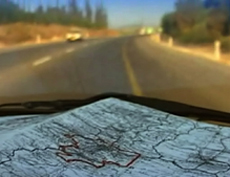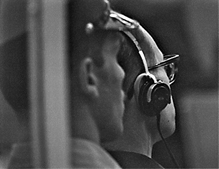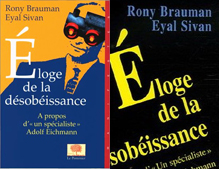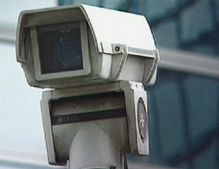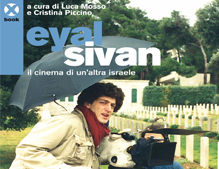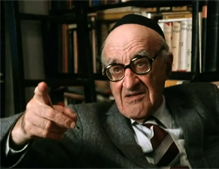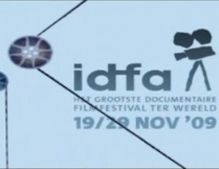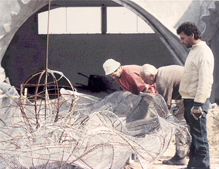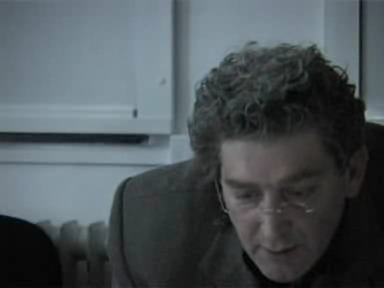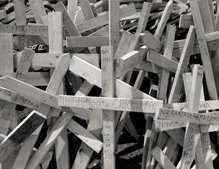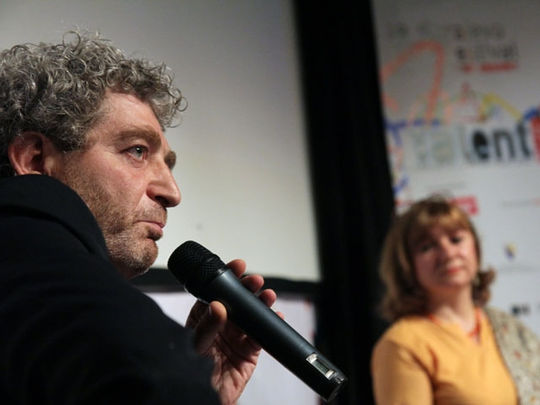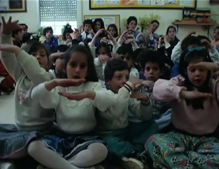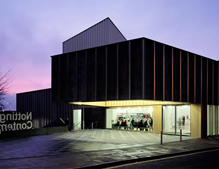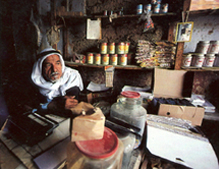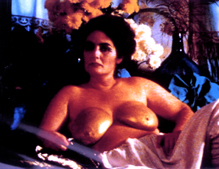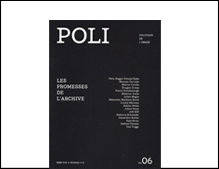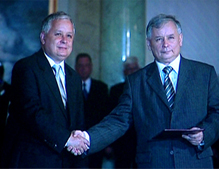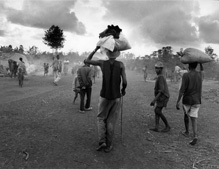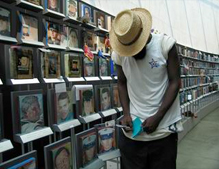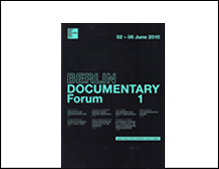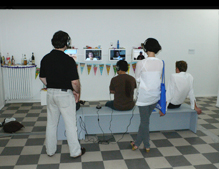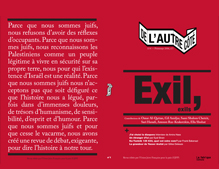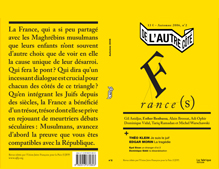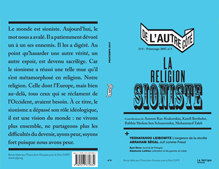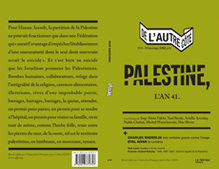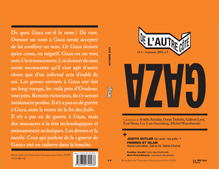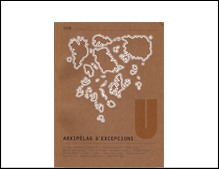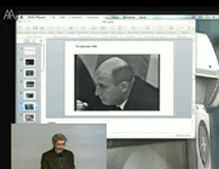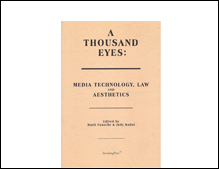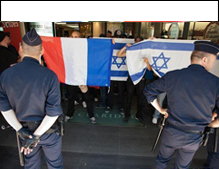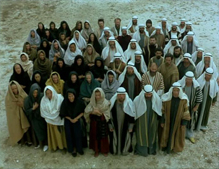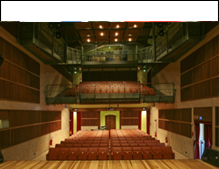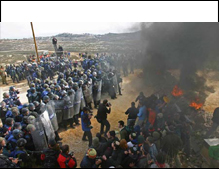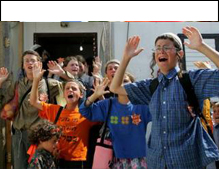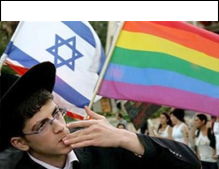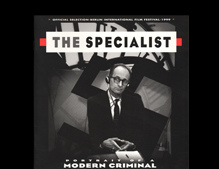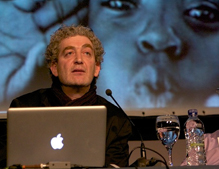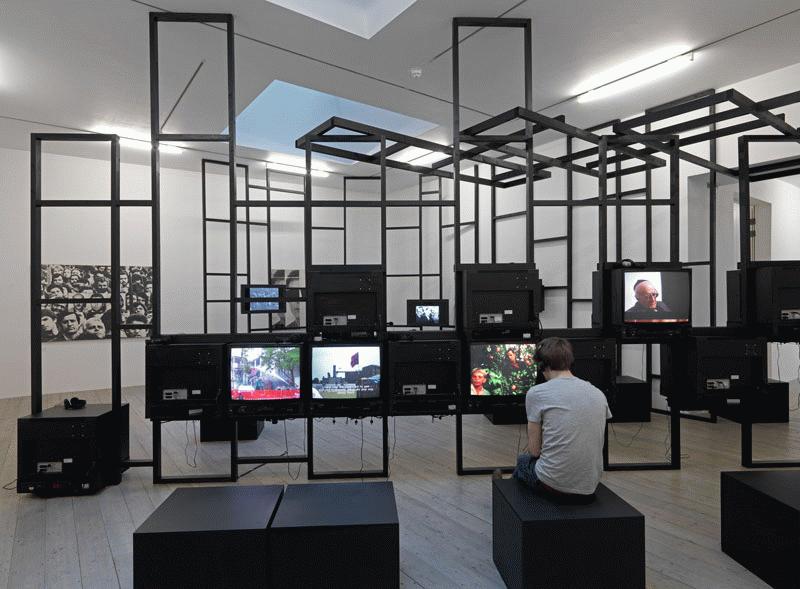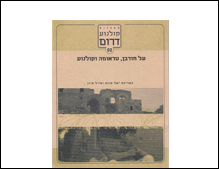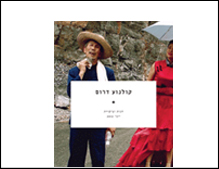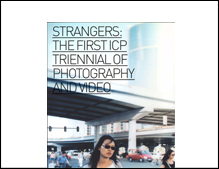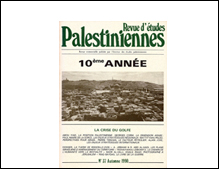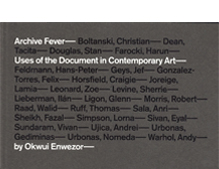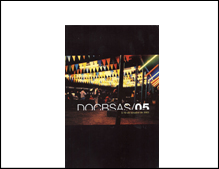-
Proposal for a visual media exhibition
with the participation of students of the Master of Film at the Dutch Film Academy, Amsterdam -
Get my films
Buy DVDs online at www.momento-films.com -
IZKOR
slaves of memory
Documentary film | 1990 | 97 min | color | 16mm | 4:3 | OV Hebrew ST -
Common Archive Palestine 1948
web based cross-reference archive and production platform
www.commonarchives.net/1948 - Project in progress - -
Montage Interdit [forbidden editing]
With professors Ella (Habiba) Shohat and Robert Stam / Berlin Documentary Forum 2 / Haus der Kulturen der Welt / June 2012 -
Route 181
fragments of a journay in Palestine-Israel
Documentary film co-directed with Michel Khleifi | 2003 | 272 min [4.5H] | color | video | 16:9 | OV Arabic, Hebrew ST
-
The Specialist
portrait of a modern criminal
Documentary film | 1999 | co-author Rony Brauman | 128 min | B/W | 4:3 | 35 mm | OV German, Hebrew ST -
Jaffa
the orange's clockwork
Documentary film | 2009 | 88 min | color & B/W | 16:9 | Digital video | OV Arabic, Hebrew, English, French ST
-
Montage Interdit
www.montageinterdit.net
Web-based documentary practice. A production tool, archive and distribution device | project in progress
-
Common State
potential conversation [1]
Documentary film | 2012 | 123 min | color | video | 16:9 split screen | OV Arabic, Hebrew ST -
Towards a common archive
testimonies by Zionist veterans of 1948 war in Palestine
Visual Media exhibition | Zochrot Gallery (Zochrot visual media lab) | Tel-Aviv | October 2012 - January 2013
-
I Love You All
Aus Liebe Zum Volk
Documentary film co-directed with Audrey Maurion | 2004 | 89 minutes | b/w & color | 35mm | OV German, French ST
press
Lives behind the lens" by Calev Ben-David and Eldad Beck (The Jerusalem Report)
11.07.1991
Israeli filmmaker Eyal Sivan, 26, has lived in Paris for the last five years in what he calls a "voluntary exile" from his homeland. Born in Haifa and raised in Jerusalem, he identifies with the extreme left of the Israeli political spectrum. In 1981, he was one of a group of 27 high school students who declared that they would refuse to do their army service; he avoided prison after being given a psychological deferment. Sivan went on to direct the television ads of the Jewish-Arab "Progressive List for Peace" party in the last Knesset election campaign.
He will be returning from his "exile" to present at the festival his second film, "Izkor: The Slaves of Memory." a documentary about both the Jewish collective memory of persecution and suffering, and how, in Sivan's perception, the Israeli establishment cultivates this through the educational system and exploits it for political purposes.
In April 1990, Sivan and his film crew followed five Israeli schoolchildren during a month full of commemorative days, including Passover, Memorial Day and Holocaust Remembrance Day, documenting how these events were presented to them and how they responded. Sivan tries to prove the existence of a linkage between what maverick Prof. Yeshayahu Leibowitz calls in the film "the slavery of memory" _how from early childhood Israelis are exposed to an educational system that mythifies the Jewish history of suffering_ and the way they later justify a certain type of behavior toward Palestinians.
"Izkor," says Sivan, "is not just an attack on the Israeli education system but on Zionism's ideological roots. I'm not against memory, but we can't just remember what the others did to us; we've also got to remember what we've done, and we're doing, to others." Sivan rejects accusations that he is anti-Israeli. Although married to a French woman, he hasn't applied for French citizenship. "I visit Israel three to four times a year, I make films about it. I want this country to continue existing because I love it, with all my criticism. I just make a distinction between Zionism and the State of Israel; I think Israel can exist without Zionism. And one day," he adds, "they'll say proudly that only Israeli democracy could have produced citizens like me - who spit in its face."
He will be returning from his "exile" to present at the festival his second film, "Izkor: The Slaves of Memory." a documentary about both the Jewish collective memory of persecution and suffering, and how, in Sivan's perception, the Israeli establishment cultivates this through the educational system and exploits it for political purposes.
In April 1990, Sivan and his film crew followed five Israeli schoolchildren during a month full of commemorative days, including Passover, Memorial Day and Holocaust Remembrance Day, documenting how these events were presented to them and how they responded. Sivan tries to prove the existence of a linkage between what maverick Prof. Yeshayahu Leibowitz calls in the film "the slavery of memory" _how from early childhood Israelis are exposed to an educational system that mythifies the Jewish history of suffering_ and the way they later justify a certain type of behavior toward Palestinians.
"Izkor," says Sivan, "is not just an attack on the Israeli education system but on Zionism's ideological roots. I'm not against memory, but we can't just remember what the others did to us; we've also got to remember what we've done, and we're doing, to others." Sivan rejects accusations that he is anti-Israeli. Although married to a French woman, he hasn't applied for French citizenship. "I visit Israel three to four times a year, I make films about it. I want this country to continue existing because I love it, with all my criticism. I just make a distinction between Zionism and the State of Israel; I think Israel can exist without Zionism. And one day," he adds, "they'll say proudly that only Israeli democracy could have produced citizens like me - who spit in its face."

